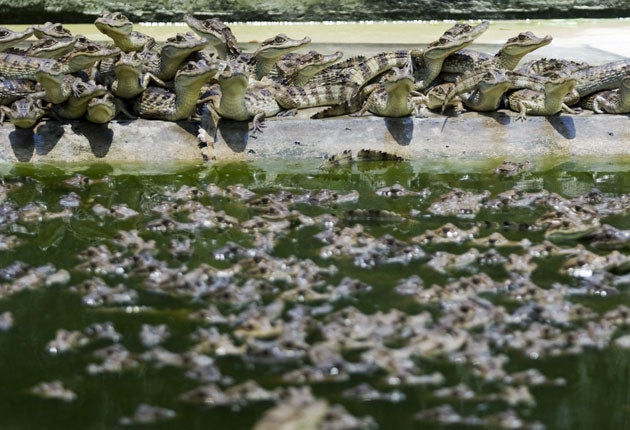Picture of the Day: Mint croc dip

Your support helps us to tell the story
From reproductive rights to climate change to Big Tech, The Independent is on the ground when the story is developing. Whether it's investigating the financials of Elon Musk's pro-Trump PAC or producing our latest documentary, 'The A Word', which shines a light on the American women fighting for reproductive rights, we know how important it is to parse out the facts from the messaging.
At such a critical moment in US history, we need reporters on the ground. Your donation allows us to keep sending journalists to speak to both sides of the story.
The Independent is trusted by Americans across the entire political spectrum. And unlike many other quality news outlets, we choose not to lock Americans out of our reporting and analysis with paywalls. We believe quality journalism should be available to everyone, paid for by those who can afford it.
Your support makes all the difference.Rarely are photographers met with subjects that are just as snap-happy as themselves, but they met their match in northern Colombia on Saturday when 800 baby alligators – that adds up to an awful lot of teeth – were released into the wild.
They are the first batch of 7,000 of the creatures that will be getting used to life in their natural habitat in the next six months, after being set free at the village of Barranco de Loba village in the province of Bolivar in the northern part of the country.
The two-year old creatures, which measure between 75 and 90cm long, were hatched at the "zoocriadero," a local animal breeding facility. Their new home is the country's largest river, the Magadena, but not all of their fellow residents are particularly happy about the project.
As well as fears that the introduction of the animals will unbalance the local ecosystem, there are also worries that they could harm the local economy by competing with fishermen for the traditional local catch: herring.
Join our commenting forum
Join thought-provoking conversations, follow other Independent readers and see their replies
Comments